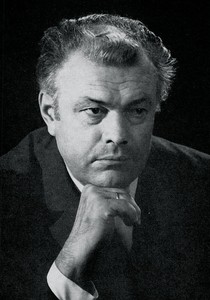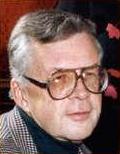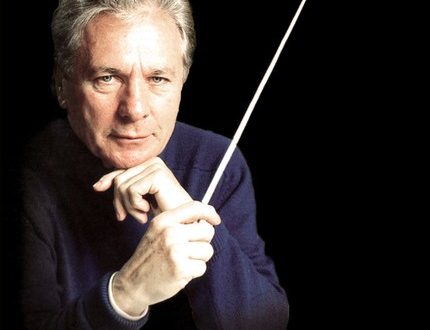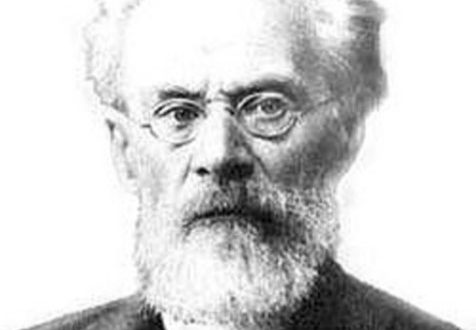
Eduardas Balsys |
Eduard Balsy

E. Balsis is one of the most outstanding musicians of Soviet Lithuania. His work as a composer, teacher, musical public figure and publicist is inseparable from the flourishing of the Lithuanian school of composers in the post-war period. Since the end of the 50s. he is one of its leading masters.
The creative path of the composer is complex. His childhood is connected with the Ukrainian city of Nikolaeva, then the family moves to Klaipeda. During these years, communication with music was accidental. In his youth, Balsis did a lot of work – he taught, was fond of sports, and only in 1945 he entered the Kaunas Conservatory in the class of Professor A. Raciunas. The years of study at the Leningrad Conservatory, where he took a postgraduate course with Professor V. Voloshinov, remained forever in the memory of the composer. In 1948, Balsis began teaching at the Vilnius Conservatory, where from 1960 he headed the department of composition. Among his students are such well-known composers as A. Brazhinskas, G. Kupryavicius, B. Gorbulskis and others. opera, ballet. The composer paid less attention to chamber genres – he turned to them at the beginning of his career (String Quartet, Piano Sonata, etc.). Along with the classical genres, the legacy of Balsis includes pop compositions, popular songs, music for theater and cinema, where he collaborated with leading Lithuanian directors. In the constant interaction of entertaining and serious genres, the composer saw ways of their mutual enrichment.
The creative personality of Balsis was characterized by constant burning, the search for new means – unusual instrumental compositions, complex techniques of the musical language or original compositional structures. At the same time, he always remained a truly Lithuanian musician, a bright melodist. One of the most important facets of Balsis’s music is its connection with folklore, of which he was a deep connoisseur. This is evidenced by his numerous arrangements of folk songs. The composer believed that the synthesis of nationality and innovation “will continue to open new interesting ways for the development of our music.”
The main creative achievements of Balsis are connected with symphony – this is his difference from the choral orientation traditional for the national culture and the most profound influence on the younger generation of Lithuanian composers. However, the embodiment of his symphonic ideas is not the symphony (he did not address it), but the concert genre, opera, ballet. In them, the composer acts as a master of the symphonic development of form, timbre-sensitive, coloristic orchestration.
The biggest musical event in Lithuania was the ballet Eglė the Queen of the Serpents (1960, original lib.), based on which the first film-ballet in the republic was made. This is a poetic folk tale about fidelity and love overcoming evil and treachery. Colorful sea paintings, bright folk-genre scenes, spiritualized lyrical episodes of the ballet belong to the best pages of Lithuanian music. The theme of the sea is one of Balsis’s favorite works (in the 50s he made a new edition of the symphonic poem “The Sea” by M.K. In 1980, the composer again turns to the marine theme. This time in a tragic way – in the opera Journey to Tilsit (based on the short story of the same name by the German writer X. Zuderman “Lithuanian Stories”, lib. own). Here Balsias acted as the creator of a new genre for the Lithuanian opera – a symphonized psychological musical drama, inheriting the tradition of A. Berg’s Wozzeck.
Citizenship, interest in the burning problems of our time were reflected with particular force in the choral compositions of Balsis, written in collaboration with the largest poets of Lithuania – E. Mezhelaitis and E. Matuzevičius (cantatas “Bringing the Sun” and “Glory to Lenin!”) And especially – in the oratorio based on the poems of the poetess V. Palchinokayte “Do not touch the blue globe”, (1969). It was with this work, which was first performed at the Wroclaw Music Festival in 1969, that Balsis’s work gained national recognition and entered the world stage. Back in 1953, the composer was the first in Lithuanian music to address the theme of the struggle for peace in the Heroic Poem, developing it in Dramatic Frescoes for piano, violin and orchestra (1965). The oratorio reveals the face of war in its most terrible aspect – as the murderers of childhood. In 1970, speaking at the international conference of ISME (International Association of Children’s Music Education) after the performance of the oratorio “Don’t touch the blue globe”, D. Kabalevsky said: “The oratorio of Eduardas Balsis is a vivid tragic work that leaves an indelible impression with the depth of thought, the power of feeling , internal stress. The humanistic pathos of Balsis’s work, his sensitivity to the sorrows and joys of mankind will always be close to our contemporary, a citizen of the XNUMXth century.
G. Zhdanova





